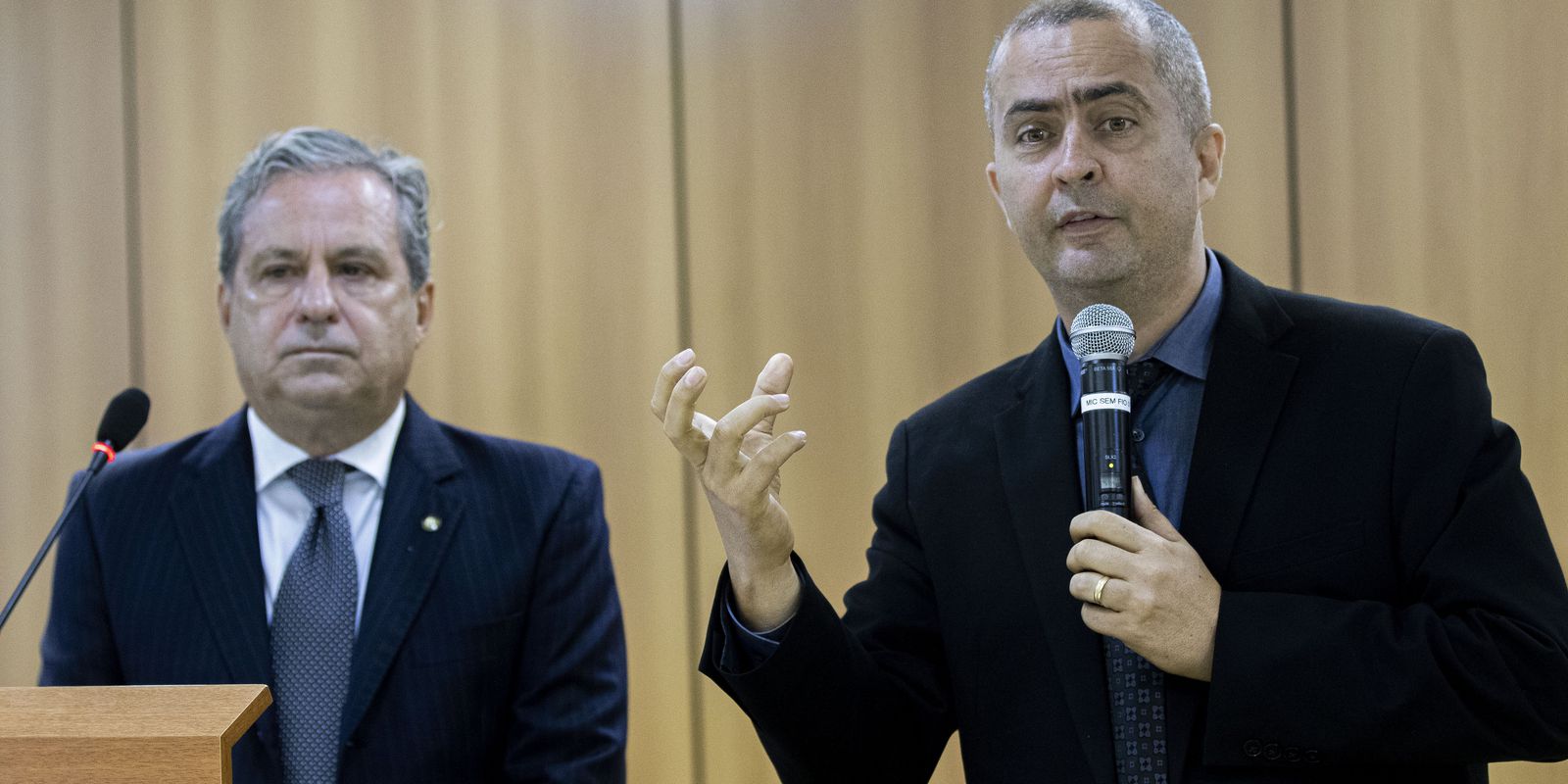The fifth phase of Operation 404, launched this Tuesday (14th), under the coordination of the Ministry of Justice and Public Security, arrested at least 11 people in four states, four of which were in São Paulo; two in Paraná; four in Minas Gerais; and one in Bahia.
The new phase of the operation fights digital piracy crimes on websites and streaming illegal music and games to promote greater security for intellectual property in Brazil.
In this new phase, the National Secretariat for Public Security (Senasp) joined the actions of the civil police in eight states, in the fight against online piracy: Pernambuco, São Paulo, Paraná, Minas Gerais, Rio Grande do Sul, Bahia, Ceará and Rio de Janeiro. January. There was also international collaboration from Peru, through the Instituto Nacional de Defensa de la Competencia y de la Protección de la Propiedad Intelectual (Indecopi), and from the United Kingdom, with the Metropolitan Police Service of London, Intellectual Property Office (IPO) and Police Intellectual Property Crime Unit (PIPCU).
Numbers
In addition to arrests in flagrante delicto, the fifth phase of Operation 404 blocked, in the three countries, 199 websites and 63 illegal applications of streaming that broadcast audiovisual content of series, games and music; and six channels of messaging apps (such as WhatsApp and Telegram) were also blocked for illegally distributing music. In Peru alone, 73 illegal sites and applications were taken down, and in the United Kingdom, 25 piracy sites.
The operation also de-indexed content on internet search engines and removed profiles and pages on social networks.
In all, 32 search and seizure warrants for computers, equipment, HDs associated with the crimes and notes were carried out.
When presenting the details of Operation 404, the National Secretary for Public Security of the Ministry of Justice and Public Security, Tadeu Alencar, estimated that piracy results in damage to the economic order of about “R$ 15 billion per year in Brazil. And approximately R$ 2 billion a year in taxes are no longer collected”.
Piracy
Although the target of Operation 404 is criminals who illegally share pirated content, the coordinator of the Cybernetic Operations Laboratory of the Secretariat for Integrated Operations of the Ministry of Justice and Public Security, delegate Alesandro Barreto, warns consumers who purchase pirated products. “Piracy is a crime, punishable by law. Do not use”.
Delegate Alesandro, from Ciberlab/MJSP, estimates that “between 30 million and 40 million people in Brazil consume some type of piracy”.
Delegate Alesandro also cited other criminal practices that go beyond violating the intellectual property of content producers, such as money laundering and spying on users’ personal data.
In the previous phases of the operation, delegate Alesandro found the security vulnerability of online platforms for pirated content and TV sets (dubbed little boxes), used to access paid and streaming channels. “You’re going to download an app, you’re going to buy a box, thinking that you’re going to put this at an advantage in your home. In reality, they will capture your data. Ends that you give access to your data, your network of contacts, your location. Be careful with pirated content. This will definitely bring you losses”, warned Alesandro.
In Brazil, the crime of copyright infringement is punishable by imprisonment and a fine. Those investigated may also be indicted for criminal association and money laundering.
Operation 404
Initiated in 2019, Operation 404 is an ongoing action by the MJSP and was named in reference to the web response error code of the so-called HTTP transfer protocol (acronym for Hypertext Transfer Protocol Secure), which are the first letters typed into a browser to access a website.
Thus, when the user searches for an electronic address and the number 404 is published on the internet, the message will indicate that the site was not found or is unavailable.
According to the MJSP, one of the main actions of the operation is to make criminal online services that violate victims’ copyrights unavailable.
As a general balance, in the five phases of Operation 404, 1,974 websites were blocked, 783 applications were unavailable, 128 search warrants were fulfilled, in 20 Brazilian states and in the United States, Peru and United Kingdom.
In Brazil, the authorities of Operation 404 count on the cooperation of the National Film Agency (Ancine), the Brazilian Association of Pay Television (ABTA), among other associations for the protection of intellectual property.


















